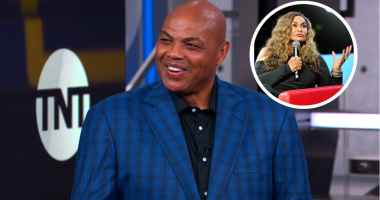REAL ESTATE LOANS – FOR INVESTMENT PROPERTY, LEARN HOW THE COMMERCIAL FINANCING PROCESS WORKS.
If you want to put your name on a piece of commercial real estate, you’ll need to secure funding first. If you’ve previously acquired a permanent dwelling or an investment property, you may have some financing expertise. Commercial real estate loans, on the other hand, exist in their own universe.

What Is A Commercial Real Estate Loan?
A commercial real estate loan is a type of financing that is available for income-producing real estate. Typically, this type of loan allows you to cover the costs of purchasing or renovating a property that will be used as a place of business.
Why Do You Need A Commercial Real Estate Loan?
A commercial real estate loan is necessary if you need to finance the purchase of a commercial property. The most common reason why a person would obtain a commercial real estate loan is to open a business. However, there is also room to make income from renting units using commercial loans.
What Are The Differences Between Residential, Consumer And Commercial Real Estate Loans?
Consumer and commercial real estate loans are two different financial products. Both come with different specifications regarding qualifications, loan usage and loan terms. Residential loans are consumer loans that cannot be used for business properties. With a residential loan, you’re financing the purchase of a residential property with four units or less. A residential loan works for a property that will be used to generate income as long as it does not exceed the four-unit rule.
By contrast, commercial loans are used to purchase business properties. A commercial real estate loan is also required when purchasing housing when the housing contains more than four units. The interest rate, lifespan and terms of a commercial loan are more restrictive than a residential loan. One big difference is that a commercial business loan may require collateral. Lenders also typically require annual reports and reviews for commercial business loans that aren’t in place for consumer loans.
Types Of Commercial Real Estate Loans
When purchasing commercial real estate, there are many financial products to consider. Borrowers can opt for a government-backed product called a Small Business Administration (SBA) loan, a traditional loan or a private loan (bridge or hard money loans).
When purchasing an apartment complex or residence containing more than four units, commercial multifamily loans should be considered. These loans often range from $500,000 to millions of dollars. Like commercial real estate loans, commercial multifamily loans can be government-backed loans, traditional loans or private loans.
Some specific loan products to consider are Fannie Mae loans, Freddie Mac loans, FHA loans and HUD loans. Bridge loans and construction loans may fit your project if you’ll be updating or rehabbing a commercial property before using it to generate income.
Tips For How To Choose A Commercial Real Estate Lender

When choosing a lender it’s important to look at the types of financial products offered. You’ll also want to inquire about the loan sizes available. Here are some questions to have on your checklist when vetting commercial lenders:
- What should I expect for loan terms, interest rates and amortization?
- What should I expect for origination fees? Do they total more than 1 percent of the loan?
- Will I be required to deposit several months of interest payments into escrow as a loan condition?
- What is the lender’s definition of a stable asset?
- Will prepayment penalties apply?
Most important of all is choosing a commercial real estate lender that provides loans for the area where you’re looking to purchase property. It’s also wise to go with a lender that provides a wide variety of different loan products even if you’re pretty sure you know what you need. Details that emerge during the approval process may require you to shift to a different loan product.
How Are Commercial Loan Rates Determined?
While there are general ranges for commercial loan rates, the number a lender presents to you will largely rest on two very specific factors. First, your lender will want to look at your business finances to see how healthy your business plan is. Next, the lender will take a look at your personal finances to assess your risk as a borrower. Loan rates are somewhat out of your control because they are tied to the Federal Reserve.
WHAT ARE THE COMMON INTEREST RATES AND FEES?
Commercial borrowers are looking at rate windows from 3 percent to 10 percent. While SBA loans often represent the lowest rate, short-term options like bridge loans represent the highest. Closing costs on a commercial loan can range from 2 percent to 7 percent of the total loan value. Origination fees total around 1 percent.
HOW DO LOAN-TO-VALUE RATIOS WORK?
Lenders look at the loan balance you’re requesting against the value of the asset you’re purchasing. You’ll typically get larger loans for more “stable” assets. In many cases, banks will lend up to 80 percent of the value of the property you’re purchasing.
HOW DO DEBT SERVICE COVERAGE RATIOS WORK?
Lenders use this to determine a property’s potential to be profitable. When weighing your debt service coverage ratio, a lender is really trying to determine cash flow by formulating a ratio of income to your principal and interest. To have a positive cash flow, you’ll need a ratio of 1.5. Anything below 1 indicates a negative cash flow.
WHAT DOES THE LOAN REPAYMENT TIME FRAME LOOK LIKE?
This depends entirely on the type of financial product you select! The typical 30-year mortgage that is used for residential borrowing does not apply. Commercial real estate loans have repayment periods lasting from less than five years to around 20 years.
How To Apply For A Commercial Real Estate Loan
Here’s a look at the steps lenders will require:
- Find a property that fits your needs.
- Make your offer.
- Prepare a financial package for lenders.
- Send your financial package to commercial lenders for quotes.
- Work with a lender to choose the right loan product based on your desired loan size, loan length, and chosen property.
- Conduct your due diligence to prepare for closing. This will include inspection and appraisal.
- Close on the property.
Of course, this is a simplified version of what it takes to get a loan. In reality, you will be spending hours and hours conducting research for choosing the right property for your business plan. This often entails working closely with a commercial real estate agent for weeks or months to identify a property that fits your needs.
Additionally, you’ll ideally have a real estate lawyer working with you through the process. Once your loan application is submitted, it can take several weeks for a loan to be approved. Don’t be surprised if the commercial lender makes several requests for documents or clarifications during the approval process.
WHAT DOES THE LOAN APPLICATION PROCESS LOOK LIKE?
The loan application for a commercial real estate loan is far more exhaustive than the process for obtaining a residential mortgage. Keep in mind that lenders are reviewing both your personal and business financial health when assessing your risk as a borrower. Additionally, they are assessing the risk of the property you’re planning to purchase.
CREDIT SCORE EVALUATION
Your lender will look at your personal credit score and business credit score. You will also be asked for personal and business tax returns going back at least two years. Bank statements going back three to six months are often requested.
LIQUIDITY ANALYSIS
Lenders are really looking at your liquidity closely when reviewing your financial packet. One of the big things they want to know is whether you’ll be able to pay off your loan while also handling the operating costs of running your business. This is why they are very interested in seeing paperwork that represents your profits and losses to get an idea of your revenue. While all lenders have different requirements, you shouldn’t be surprised if a commercial lender asks you to include a cash-flow projection for the next two to 12 months.
PROPER BUSINESS PLAN
Lastly, lenders will want to see a business plan. This document will be more important if you don’t already have an established business because a lender will need to rely on this instead of simply looking back at past performance and revenue. A business plan will highlight your purpose, strategy, and business methods. Your lender is essentially trying to gauge the viability of your business when deciding whether to lend to you. Lenders also want to see a loan purpose statement that details exactly where the money you receive will be applied in your business.
INVESTMENT PROPERTY DETAILS
Lenders are also interested in details regarding the property being financed. During the application process, you can expect to be asked to provide verification regarding the property’s deed, your purchase contract, lien information, existing rental agreements/tenants, tax receipts and proof of insurance.










